What is Thinset Concrete?
Thinset concrete is a versatile and durable material commonly used for constructing countertops. It is a blend of Portland cement, sand, and water, with the addition of a polymer additive for improved adhesion and flexibility. Thinset concrete offers several advantages over traditional concrete, such as its thinner application and faster curing time. This makes it ideal for creating sleek and modern countertops requiring a thinner profile.
Additionally, thinset concrete countertops offer great strength and durability, making them resistant to scratches, heat, and stains. With its customizable appearance and practical features, thinset concrete has become increasingly popular in residential and commercial applications.
The Benefits of Thinset Concrete Countertops
Thinset concrete countertops provide numerous benefits, making them an excellent choice for homeowners and designers alike. Their thin profile allows for a sleek and contemporary look, perfect for modern kitchen or bathroom designs. The thinner application also results in lighter-weight countertops, which can be advantageous for installation.
Moreover, thinset concrete countertops offer exceptional durability and strength, making them resistant to everyday wear and tear. They can withstand high temperatures, ensuring hot pots and pans won’t damage the surface. Additionally, thinset concrete can be easily customized to fit any design aesthetic, with various colors, textures, and finishes available. Whether you prefer a smooth and polished surface or a more rustic and textured look, thinset concrete countertops can be tailored to meet your specific preferences

Installation and Maintenance of Thinset Concrete Countertops
The installation of thinset concrete countertops requires careful planning and execution. The existing countertop surface must be properly prepared, ensuring it is clean, level, and structurally sound. A base layer, often consisting of cement board or a similar substrate, is then applied to provide a stable foundation for the thinset concrete. The thinset mixture is then spread evenly over the substrate and allowed to cure. Once cured, the countertop can be polished and sealed to enhance its appearance and protect it from stains and moisture.
In terms of maintenance, thinset concrete countertops are relatively easy to care for. Regular cleaning with mild soap and water is usually sufficient to keep the surface looking its best. However, it is recommended to reseal the countertop every few years to maintain its protective barrier. With proper installation and routine maintenance, thinset concrete countertops can be a beautiful and long-lasting addition to any home or commercial space.
Trying Our Hand At DIY Ardex Concrete Counters Young House Love
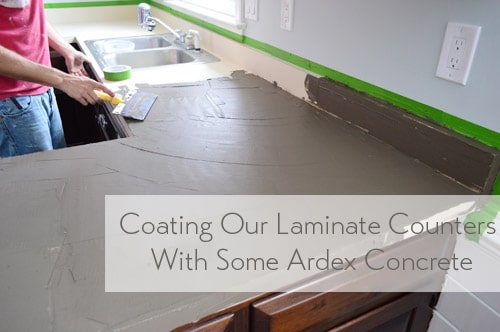
Trying Our Hand At DIY Ardex Concrete Counters Young House Love
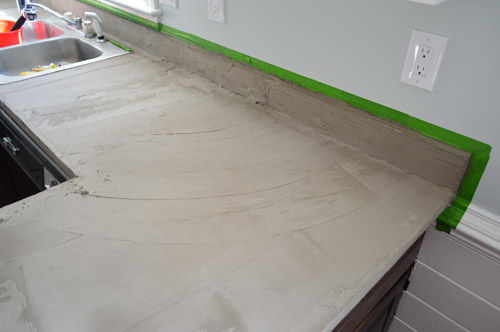
DIY Concrete countertop – thinset applied over laminate counter

Trying Our Hand At DIY Ardex Concrete Counters Young House Love
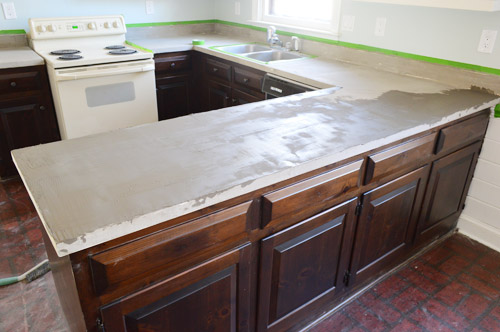
Lovely Imperfection – DIY Concrete Countertops Over Laminate
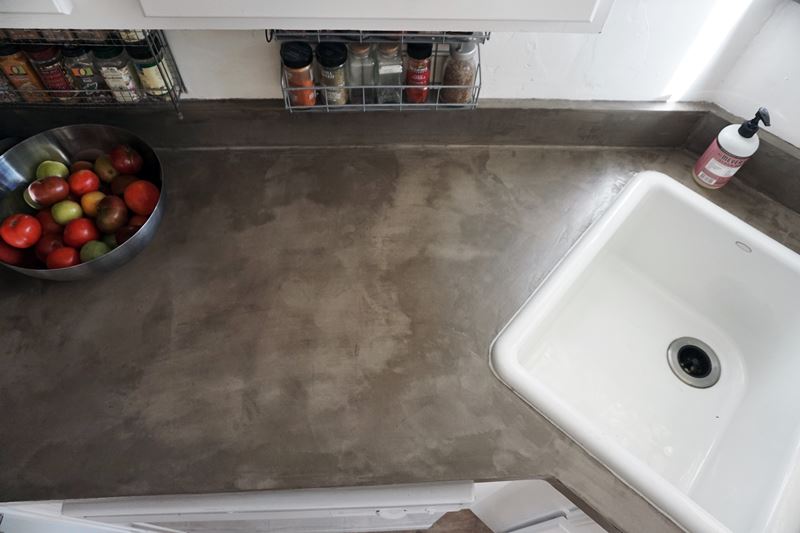
Feather Finish Concrete Over Tile Counters And Then We Tried
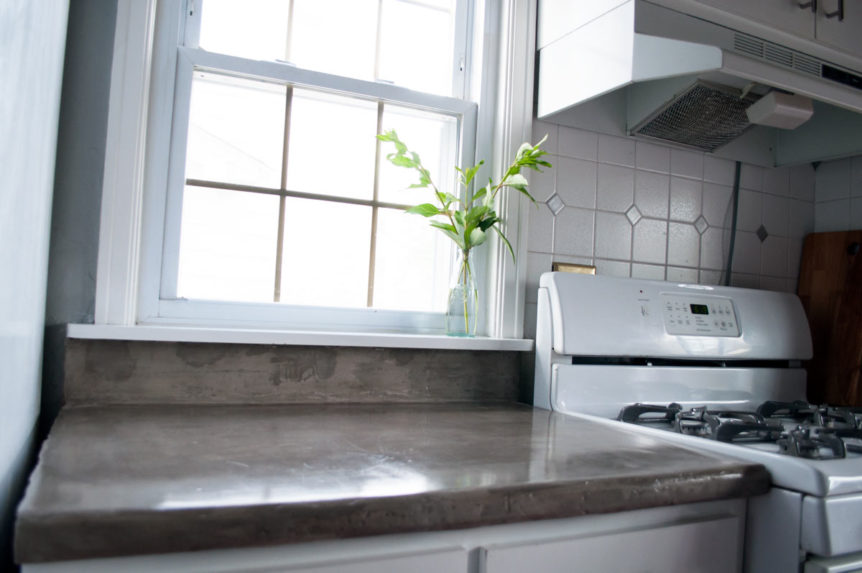
Related articles:
- Concrete Countertop Overlay
- Black Concrete Countertops
- Marble Look Concrete Countertops
- Light Grey Concrete Countertops
- Concrete Countertop Design Ideas
- Light Colored Concrete Countertops
- Epoxy On Concrete Countertop
- Concrete Countertops Designs
- Concrete Countertops That Look Like Wood
- White Concrete Countertops
Thinset Concrete Countertops: A Durable and Stylish Option for Your Kitchen
Are you looking for a stylish, low-maintenance countertop solution? If so, thinset concrete countertops may be the perfect choice for your kitchen. Thinset concrete is a durable, cost-effective material that offers a unique and custom look.
Features of Thinset Concrete Countertops
Thinset concrete is a type of mortar made from a mixture of cement, sand, and water. It is strong and can be used to create attractive and long-lasting countertops. It also comes in a variety of colors and finishes, so you can create the look you desire.
Benefits of Thinset Concrete Countertops
Thinset concrete countertops are an affordable option when compared to other types of countertop materials. They are also very durable and easy to maintain. Plus, they offer a unique and stylish look that will add character to your kitchen.
Pros & Cons of Thinset Concrete Countertops
The main benefit of thinset concrete countertops is their durability. They are strong and resistant to scratches, stains, and heat. However, they are not as heat-resistant as other materials such as granite or quartz. Additionally, thinset concrete can be difficult to install and requires special tools.
Installation & Care for Thinset Concrete Countertops
Installing thinset concrete countertops requires special tools and know-how. It is best done by an experienced professional contractor who has experience with this type of installation. Once installed, thinset concrete countertops need to be sealed regularly in order to keep them looking their best. Regular cleaning with a mild soap or detergent is also recommended.
Maintenance for Thinset Concrete Countertops
Thinset concrete countertops require regular sealing in order to keep them looking their best. Additionally, they should be cleaned regularly with a mild soap or detergent. Over time, the sealant may need to be replaced in order to keep the countertop looking its best.
Where to Buy Thinset Concrete Countertops
Thinset concrete countertops are available from most home improvement stores such as Home Depot or Lowe’s. You can also find them online from specialty retailers or directly from manufacturers.
Common Questions & Answers About Thinset Concrete Countertops
Q: How durable are thinset concrete countertops?
A: Thinset concrete countertops are very durable and resistant to scratches, stains, and heat. However, they are not as heat-resistant as other materials such as granite or quartz.
Q: Do thinset concrete countertops require special installation tools?
A: Yes, thinset concrete countertops require special tools and know-how in order to be installed properly. It is best done by an experienced professional contractor who has experience with this type of installation.
Q: Do thinset concrete countertops need to be sealed regularly?
A: Yes, thinset concrete countertops need to be sealed regularly in order to keep them looking their best. Regular cleaning with a mild soap or detergent is also recommended.